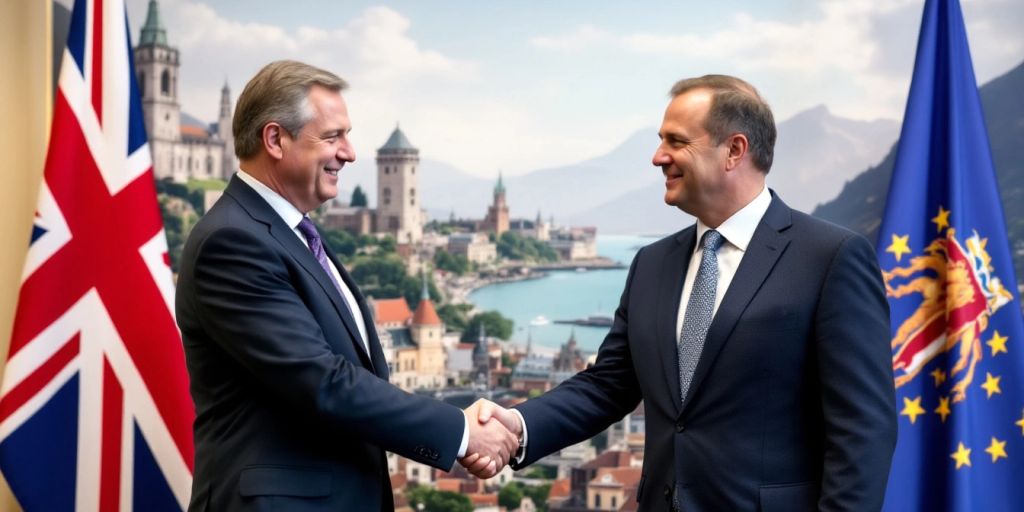The UK government is set to sign new agreements with Serbia, North Macedonia, and Kosovo aimed at combating people-smuggling gangs. This initiative, announced by Prime Minister Keir Starmer, is part of a broader strategy to reduce illegal crossings of the English Channel and enhance international cooperation in tackling organized immigration crime.
Key Takeaways
- New agreements focus on intelligence sharing and cooperation with Balkan nations.
- Almost 100,000 migrants transited through the Western Balkans last year.
- The UK aims to dismantle smuggling networks at their source.
- Starmer emphasizes the need for international collaboration to combat organized crime.
Background of the Agreements
The Western Balkans has emerged as a critical route for migrants seeking to enter the European Union or the UK illegally. In 2023, nearly 100,000 migrants used this route, highlighting the urgency of addressing the smuggling operations that exploit vulnerable individuals.
Prime Minister Starmer will officially announce these agreements during a meeting of the European Political Community (EPC) in Budapest, Hungary. This summit will also address various pressing issues, including migration, economic security, and the ongoing conflicts in Ukraine and the Middle East.
Objectives of the Agreements
The primary goals of the new agreements include:
- Enhanced Intelligence Sharing: Collaborating with Balkan countries to share critical information about smuggling operations.
- Interception of Gangs: Coordinating efforts to intercept and arrest smuggling gangs operating within these nations.
- Dismantling Business Models: Targeting the financial structures that support these criminal enterprises to disrupt their operations at the source.
Government Statements
In his remarks, Starmer stated, "There is a criminal empire operating on our continent, exacting a horrendous human toll and undermining our national security." He emphasized that the UK cannot tackle this issue in isolation and must work alongside international partners to effectively combat these networks.
Home Secretary Yvette Cooper echoed this sentiment, stating, "Our work with our partners in the Western Balkans is absolutely key to dismantling the criminal networks that orchestrate the exploitation of vulnerable people for financial gain."
Funding and Resources
To support these initiatives, the UK government has announced an additional £75 million in funding for its new Border Security Command, bringing the total investment to £150 million. This command will integrate police, intelligence, and immigration enforcement agencies to enhance the UK’s response to small boat crossings and smuggling operations.
Conclusion
The agreements with Serbia, North Macedonia, and Kosovo mark a significant step in the UK’s efforts to combat people smuggling. By fostering international cooperation and enhancing intelligence sharing, the UK aims to dismantle the networks that facilitate illegal migration and ensure the safety of vulnerable individuals seeking refuge in Europe. As the situation evolves, the UK government remains committed to addressing the challenges posed by organized immigration crime.
Sources
- New deals with Balkan countries to target people-smuggling gangs, BBC.
- Starmer to sign deals with Western Balkans countries to target smuggling gangs | The Independent, The Independent.
- UK to sign new agreements on people smuggling with Western Balkan countries – Euractiv, Euractiv.
- UK to sign new agreements on people smuggling with Balkans countries – ENG.MIZZIMA.COM, Mizzima News.
- Starmer to sign deal with Balkan nations to tackle migrant smuggling gangs | ITV News, ITVX.






